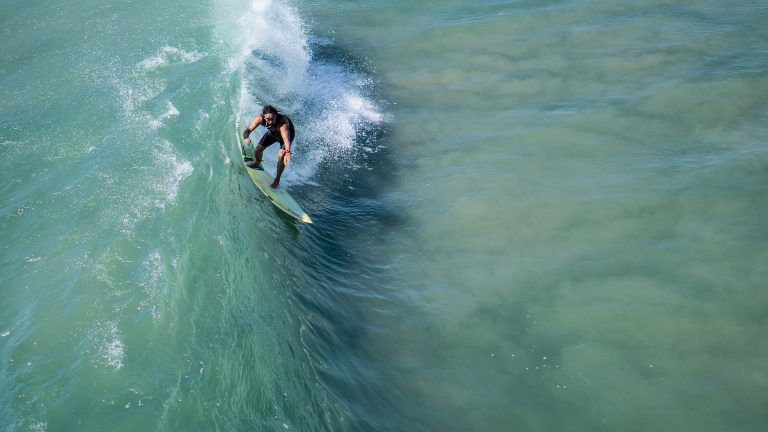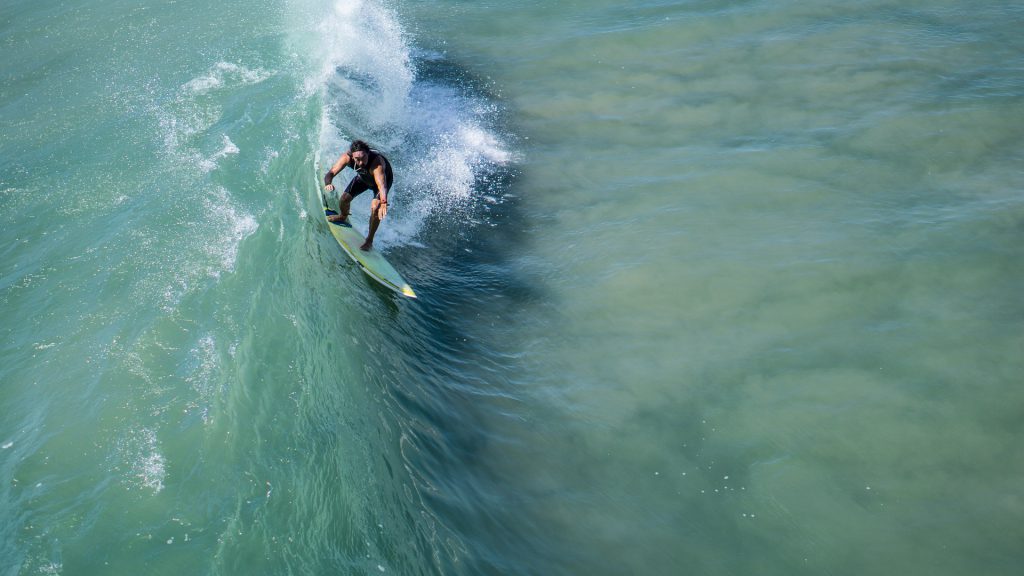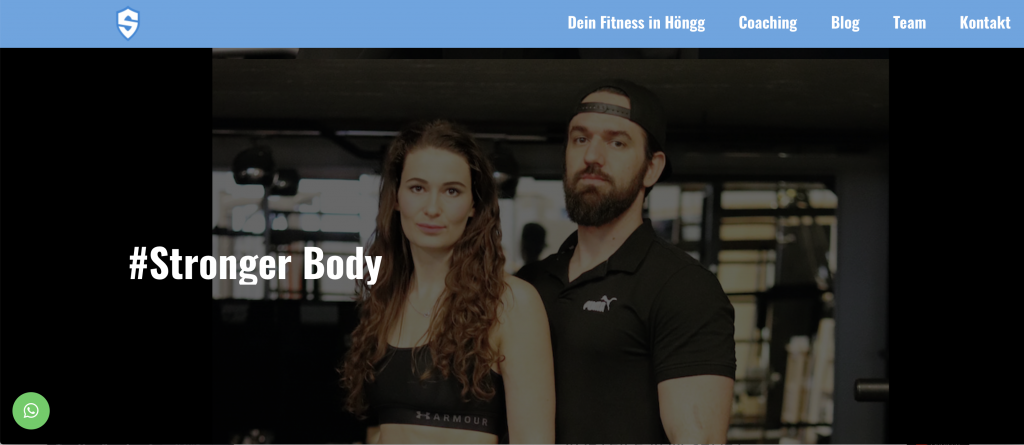Sport
In addition to inhalation and medication, sport is, in my opinion, the most important component in the fight against CF. Some sports are more beneficial to us than others. Basically, however, everything is good as long as you do something. Enclosed I would like to discuss a few aspects and tell you something from my experience.
Advantages of sport
Sport has many advantages. In addition to increased performance and strength, sport also makes you happy. Endorphins, dopamine and serotonin ensure that we are always in a good mood after sport. In a psychologically quite hard time I also started to train a lot, which really helped me a lot. Sports such as jogging, sprinting, trampolines and gymnastics can also help us to loosen tough mucus. Through movement we automatically work on the posture of our thorax and the elasticity of our lungs. So sport is also a form of breathing therapy.

The best sport
There is no best sport for us CFers. Doctors and physiotherapists recommend sports that increase endurance more than strength. Activities that cause certain vibrations in the lungs through their exercise are also highly recommended. These include
-Joggen
-Gymnastik
-Sprint
-Trampolin
- Swimming
- Cycling
-Joggen
-Gymnastik
-Sprint
-Trampolin
- Swimming
- Cycling

From my own experience
In the course of my life I have tried many sports. These include tennis, golf, American football, floorball, dancing, strength training and surfing. Everyone has helped me a little. Especially when it's hard, jogging was helpful. I could cough up a lot more sputum and my endurance improved a lot with the right training. All in all, try out what you enjoy. Be courageous, be strong.

In addition to inhalation and medication, sport is, in my opinion, the most important component in the fight against CF. Some sports are more beneficial to us than others. Basically, however, everything is good as long as you do something. Enclosed I would like to discuss a few aspects and tell you something from my experience.
Advantages of sport
Sport has many advantages. In addition to increased performance and strength, sport also makes you happy. Endorphins, dopamine and serotonin ensure that we are always in a good mood after sport. In a psychologically quite hard time I also started to train a lot, which really helped me a lot. Sports such as jogging, sprinting, trampolines and gymnastics can also help us to loosen tough mucus. Through movement we automatically work on the posture of our thorax and the elasticity of our lungs. So sport is also a form of breathing therapy.


The best sport
There is no best sport for us CFers. Doctors and physiotherapists recommend sports that increase endurance more than strength. Activities that cause certain vibrations in the lungs through their exercise are also highly recommended. These include
- Jogging - Sprint
-Gymnastics - Trampoline
- Swimming
- Cycling
From my own experience
In the course of my life I have tried many sports. These include tennis, golf, American football, floorball, dancing, strength training and surfing. Everyone has helped me a little. Especially when it's hard, jogging was helpful. I could cough up a lot more sputum and my endurance improved a lot with the right training. All in all, try out what you enjoy. Be courageous, be strong.

Sport with low FEV1
Is your FEV1 value at the moment or permanently low? Especially here I recommend you to do sports from my own experience. A limited lung performance can be very demotivating. Some CFers are therefore particularly cautious. Nevertheless I recommend you to do something for your health. Especially now sport can help you. Sport improves the immune system, makes you happy and healthy. Of course a marathon is not the goal here, but every movement is good, be it a short lap jogging (with adapted speed) or a little walk. Personally I think test where your limit is. You know your body best. If something does you no good, stop it. Probably high performance sports, heavy contact sports or similar are not the best one in this situation. The body needs a moment to adapt to the situation and to recover. Give it enough time and then see if it has worked for you. The worst thing you can do with a low FEV1 is nothing. The CF is just waiting to win. Don't give it a chance! I had 32% FEV1 for a long time, but I still struggled to do sports. In the end I landed on 56% again, more than I had before. I am aware that if I am on a lower level for years, I may not be able to achieve it anymore. But what I can do is try to maintain that level for as long as possible.
A few tips
- Choose a sport that you enjoy. There is absolutely no point in doing something that costs you a lot of effort just because you think it brings you more. Enjoying sports is half the battle, because only then will you be happy to do it regularly.
- Set yourself a clear and achievable goal. Record your progress in writing, then you will see what the training will bring you and what you could improve.
- Everybody starts small. Don't set your expectations too high for the beginning and don't be disappointed if you don't reach your goal within two days. Sport, endurance and strength need time to develop. Be patient with yourself. Even if you run a worse time than last time or lift less weight, don't give up, it's part of the process.
- Find people to help you train or tell them about your progress. Together you are stronger.
- Nutrition and rest periods are very important components in sports!
- Listen to your body and not what others are saying. Your body determines the limit. There's no shame in having a few minutes more on the kilometer or lifting less weight than others. Remember, others don't fight CF, we do! And the CF hates it when we listen to our body.
A few tips
- Choose a sport that you enjoy. There is absolutely no point in doing something that costs you a lot of effort just because you think it brings you more. Enjoying sports is half the battle, because only then will you be happy to do it regularly.
- Set yourself a clear and achievable goal. Record your progress in writing, then you will see what the training will bring you and what you could improve.
- Everybody starts small. Don't set your expectations too high for the beginning and don't be disappointed if you don't reach your goal within two days. Sport, endurance and strength need time to develop. Be patient with yourself. Even if you run a worse time than last time or lift less weight, don't give up, it's part of the process.
- Find people to help you train or tell them about your progress. Together you are stronger.
- Nutrition and rest periods are very important components in sports!
- Listen to your body and not what others are saying. Your body determines the limit. There's no shame in having a few minutes more on the kilometer or lifting less weight than others. Remember, others don't fight CF, we do! And the CF hates it when we listen to our body.
A few questions and answers
During sport, our muscles are heavily strained. During intensive strength training, for example, the muscle tears through the training. Through the build-up then, the muscle gets used to the load and builds up stronger. In order to guarantee this, an adequate diet is required. Likewise the muscle forms particularly in the rest phases, speak sleep. For intensive training, 8 hours sleep is recommended.
If you want to do intensive strength training, the rest period between training sessions is 48-72 hours, during which a muscle should rest. So wait 2-3 days before training a muscle again.
It depends on how long a session lasts. If you run short distances, 10-30 minutes a day, you can do that almost every day. Take a break at the end of the week. If you go jogging longer, limit it to every 2-3 days. Remember, your body needs to regenerate. This happens with CF a little slower than usual.
Diving, bungee jumping and skydiving are not recommended. Due to the difference in pressure, a pneumothorax may form (hole in the lungs). If you absolutely want to do one of these things, discuss it with your doctor beforehand.
In case of inflammations and infections, sport should be practised carefully and in consultation with the doctor. What is always possible, for example, is a training with the Therraband. The body should always be taken into consideration.
A low FEV1 value should not prevent the sport itself. Of course, running long distances is not necessarily possible, but every meter counts and gets you further.
Do you lack the motivation?
Have you wanted to do more sports for a long time? Do you want to achieve your fitness goal but have no motivation?
Train together often helps. Of course we can't see each other because of the germs. Or why don't you challenge me? Tell me what your goal is and I will try simultaneously to reach the same goal! Together we can do it! I believe in you! Contact me if you are interested.
Would you like to have a personal trainer who can help you with your training and give you valuable tips?
Coach Lo von strongercoaching.ch bietet auf seiner Website ein Personalcoaching an. Dabei erstellt er Dir einen persönlichen Trainingsplan den Du entweder selbstständig oder in Anwesenheit von ihm durchführen kannst. Lo hat selber keine CF, was ein face to face Coaching möglich macht. Durch unsere langjährige Freundschaft kennt er sich zudem sehr gut mit CF aus und kann Dir spezifische Tipps zu Training und Ernährung geben. Willst Du fit und gesund werden? Dann ist dies Deine Chance! Ich trainiere ebenfalls mit seinen Plänen und habe damit grossen Erfolg.

